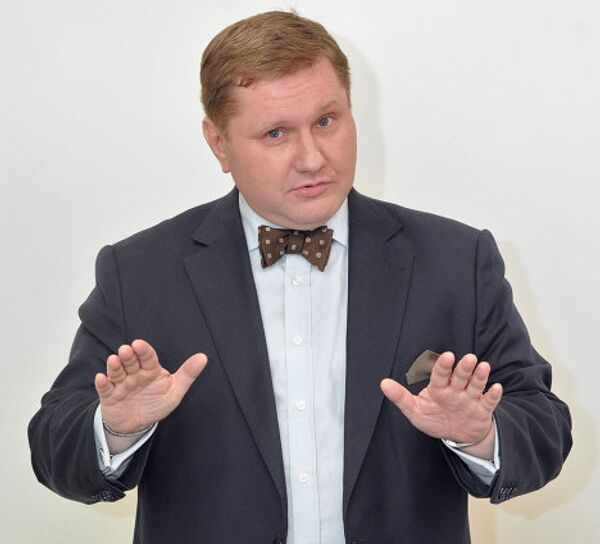It was good while it lasted. For two years Moscow had a free ride at the expense of the West’s confused policy over Syria. But it seems that the day of reckoning and re-evaluation may be close. As a US military strike against Bashar Assad regime’s military installations becomes more and more likely day by day, official Moscow seems to have lost its penchant for sweeping statements of contempt denigrating Washington and its allies.

Until 10 days ago, Russia’s rulers had used the Syrian civil war to the best of their advantage. Firstly, they used it to whip up anti-American and anti-Western feelings among the population – a favourite tool of power consolidation at home.
They reminded the world (or at they thought they had) that Moscow still wields considerable influence through its privileged position in the UN Security Council. The Kremlin strived to present an impression that it provides solid defence of its only remaining Middle East ally. In certain ways, official Russia is Bashar Assad’s main international protector, since its political position and acceptance in Western clubs like the G8 is something that Assad’s other two defenders – China and Iran – clearly do not possess.
President Vladimir Putin’s well-known dislike of president Barack Obama played a role too. Putin (with some justification) sees his US counterpart as weak, self-absorbed, and in thrall to spin-doctors. He considers Obama too vain and too inexperienced. In truth, the US administration’s record of dealing with Russia gave the Russian leader ample ground for such an opinion.
The White House largely looked the other way as the Kremlin squeezed the opposition, imposed draconian restrictions on NGOs, kicked USAID out of Russia and allegedly contributed to the change of political regime in once staunchly pro-Western Georgia.
The final humiliation came when Mr Putin subjected US Secretary of State John Kerry to unprecedented humiliation – making him wait for a meeting on the Kremlin’s doorstep.
All this made Mr Putin think that he will be able to play the Syrian card however he wishes for a long time. For him it added an additional satisfaction of getting even with the West for what he perceives as its duplicity and lies over the overthrow of the Gadhafi regime in Libya in 2011.
Everything has changed since the alleged chemical weapons attack in a Damascus suburb on August 21. And although official Moscow in a familiar, conspiratorial fashion insisted it was the rebels who used WMD, few believed it. It has been well known for many years that the Syrian government possesses large stockpiles of chemical and biological weapons and accompanying delivery systems. Although Russian officials profess deep respect for UN principles, they supported President Assad until the very last moment – while he dragged his feet over allowing UN inspectors to investigate the suspected attack on site. This only increased international suspicions.
It seems that Moscow has missed two important – connected - points. Firstly, the use of WMD, if proven, is a sign of the political regime’s utmost irresponsibility, both domestically and internationally. Secondly, Barack Obama said as much several times, and, indecisive as he is, even he finally had to react.
Although Washington may wait until the UN inspectors present their report, it does not invest a great deal of trust in the United Nations, which is paralyzed by seemingly endless consensus-making processes and the P5’s veto power. It looks like, this time, the White House decided to act. The fact is that it is clearly prepared to go it alone after the House of Commons voted against British participation in air strikes against Syria.
This puts Russia in a corner.
Now Moscow has either to defend its Syrian ally militarily – and face major confrontation with the US, or take a step back – and admit that its influence and power have shrunk dramatically.
As veteran human rights activist Alexander Podrabinek pointed out in a recent article, neither option looks all that appealing to the Kremlin. Mr Putin can take some consolation from the fact that (in all likelihood) very few allies will choose to follow London over Washington, and that the repercussions of a US attack could be unpredictable.
However, America may well enjoy a boost in terms of its standing in the region from such an action, as across the Arab world people are more likely to support the rebels rather than Bashar Assad. This basic fact remains a sobering and unpleasant reminder for the Kremlin – even under Obama’s leadership the US can still go it alone on the global stage.
The views expressed in this article are the author’s and may not necessarily represent those of RIA Novosti.
What is Russia's place in this world? Unashamed and unreconstructed Atlanticist, Konstantin von Eggert believes his country to be part and parcel of the "global West." And while this is a minority view in Russia, the author is prepared to fight from his corner.
Konstantin Eggert is Editor-in-Chief of Kommersant FM radio, Russia's first 24-hour news station. In the 1990s he was Diplomatic Correspondent for Izvestia and later the BBC Russian Service Moscow Bureau Editor. Konstantin has also spent some time working as ExxonMobil Vice President in Russia. He was made Honorary Member of the Order of the British Empire by Queen Elizabeth II.
Due West: Russia’s Aggressive Defensiveness Is Damaging Its Image
Due West: Why Putin Sees Obama as a Weakling
Due West: Checks Without Balances
Due West: The Right to Bear Arms: An Issue to Divide Any Society
Due West: Hopes for the New Pope
Due West: Putin Plots to Avert a Crisis While Retaining Power
Due West: Coming to the Polling Station Near You – New Russian Conservatives
Due West: Russia’s Cancerous Corruption Needs New Class Therapy



